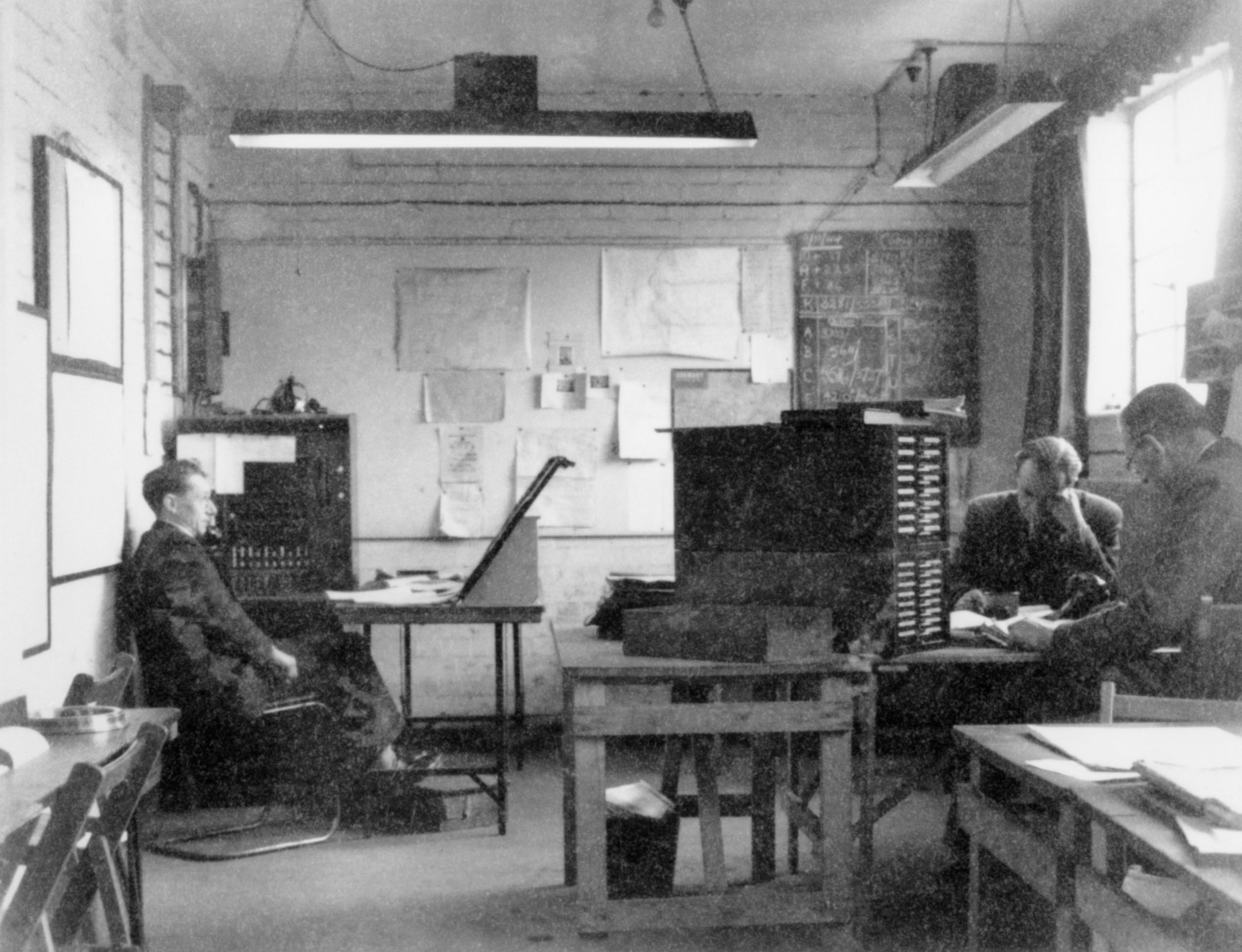
by Admin | Jul 9, 2021 | Chronicles, News
This week in The History of AI at AIWS.net – Bletchley Park cryptologists broke the German Enigma code on 9th July, 1941. Alan Turing, considered the founder of computer science and A, played a vital role in this process in developing the Bombe.
Alan Turing was a British computer scientist and cryptanalyst. He developed the Turing machine, a model of a general-purpose computer, in 1936. During the Second World War, he worked at Bletchley Park (Government Code and Cyper School) as a codebreaker for the United Kingdom. At his time here, he would play a critical role in solving Enigma, Germany’s wartime infamous encryption system. Solving Enigma helped turning the tide of the war in favour of the Allies. After the war, he would go on to develop the Turing test in 1950. Alan Turing is widely considered the father of modern Artificial Intelligence, as well as being highly influential in theoretical computer science. The “Nobel Prize of Computing”, the ACM Turing Award, is named after him.
The History of AI initiative considers this event to be important due to Alan Turing being a pivotal figure in the development of Artificial Intelligence, computing, and machine learning. Furthermore, devices and methods used to help break the code are precursors to computers and AI. Thus, this development in the war is a critical moment in the History of AI.
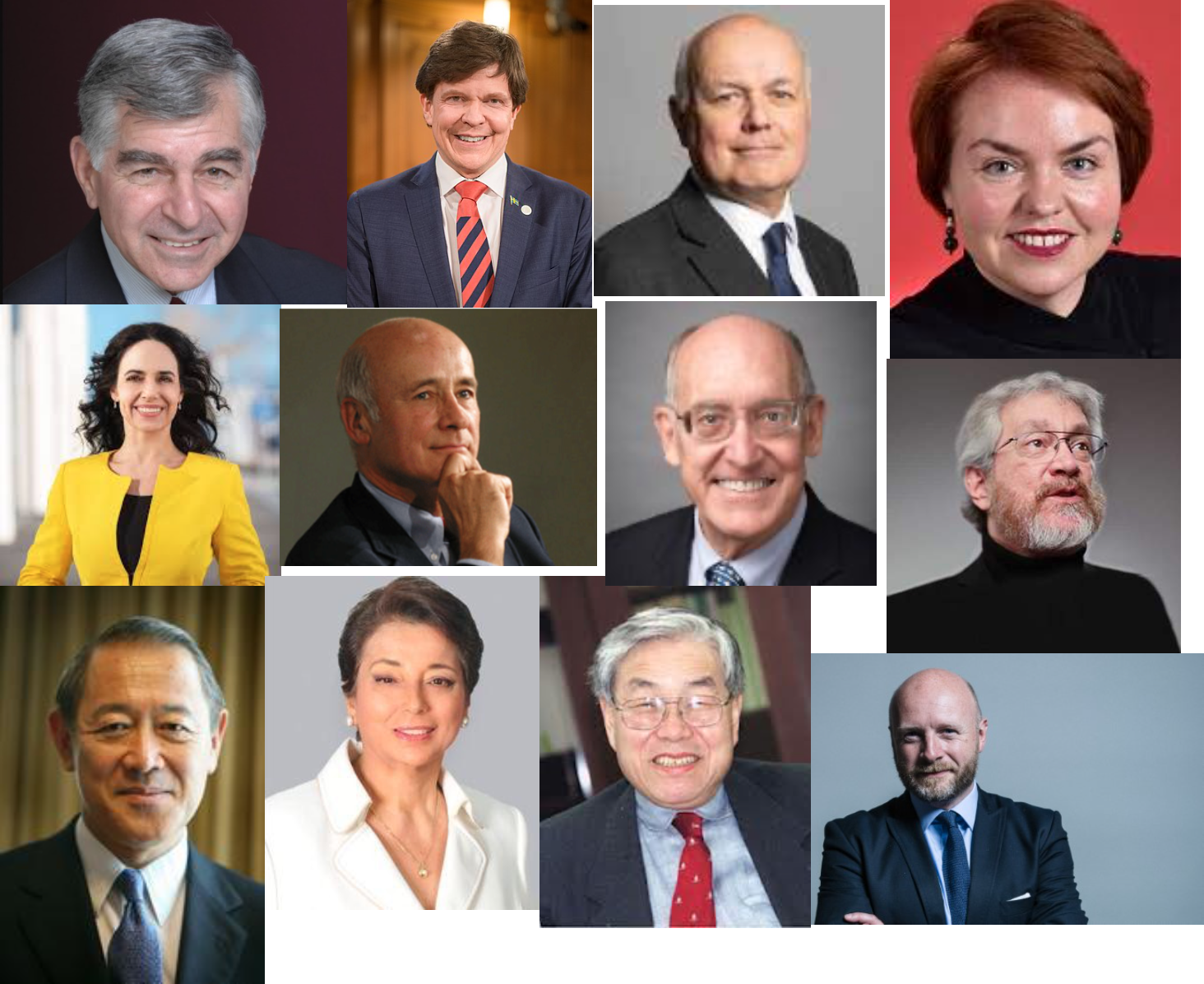
by Admin | Jul 2, 2021 | Chronicles, News
This week in The History of AI at AIWS.net – The Democratic Alliance on Digital Governance Conference was hosted on July 1st, 2020. The subheading of this event was “Protecting and Strengthening Democracy in the Aftermath of COVID-19”.
This conference was a collaboration between the Inter-Parliamentary Alliance on China (IPAC) and the Boston Global Forum. Leaders of the IPAC – Sir Iain Duncan Smith, Senator Kimberley Kitching, and MEP Miriam Lexmann – spoke and dialoged with political leaders and distinguished thinkers to build new alliances and new global economic strategies after the COVID-19 pandemic. The event was moderated by Governor Michael Dukakis. The Democratic Alliance is a part of the Social Contract 2020, A New Social Contract in the Age of AI.
This conference, albeit happening just in the past year, is a contributing stone to the foundation and the road to the Social Contract 2020, which was released later that year. Thus, the HAI project considers this a milestone in the development of artificial intelligence, in broader society and in the context of the global pandemic.

by Admin | Jun 26, 2021 | Chronicles, News
This week in The History of AI at AIWS.net – DARPA founded the Strategic Computing Initiative to fund research of advanced computer hardware and artificial intelligence in 1983. DARPA stands for the Defense Advanced Research Projects Agency, a research and development agency founded by the US Department of Defense in 1958 as the ARPA. Although its aim was for usage in the military, many of the innovations the agency funded were beyond the requirements for the US military. Some technologies that emerged from the backing of DARPA are computer networking and graphical user interfaces. DARPA works with academics and industry and report directly to senior DoD officials.
The Strategic Computing Initiative was founded in 1983, after the first AI winter in the 70s. The initiative supported projects that helped develop machine intelligence, from chip design to AI software. The DoD spent a total of 1 billion USD (not adjusted for inflation) before the program’s shutdown in 1993, even though there were several cuts in the late 80s. Although the initiative failed to reach its overarching goals, specific targets were still met.
This project was created in response to Japan’s Fifth Generation Computer program, funded by the Japanese Ministry of Trade and Industry in 1982. The goal of this program was to create computers with massively parallel computing and logic programming and to propel Japan to the top spots in advanced technology. This will then create a platform for future developments in AI. By the time of the program’s end, the opinion of it was mixed, divided between considering it a failure or ahead of its time.
Although the results of the SCI and other computer/AI projects in the 80s were mixed, they helped brought funding back to AI development after the first AI winter in the 70s. The History of AI marks the Strategic Computer Initative as an important event in AI due to its revival of AI in the US. The SCI towards its ends also indicated a second AI winter.
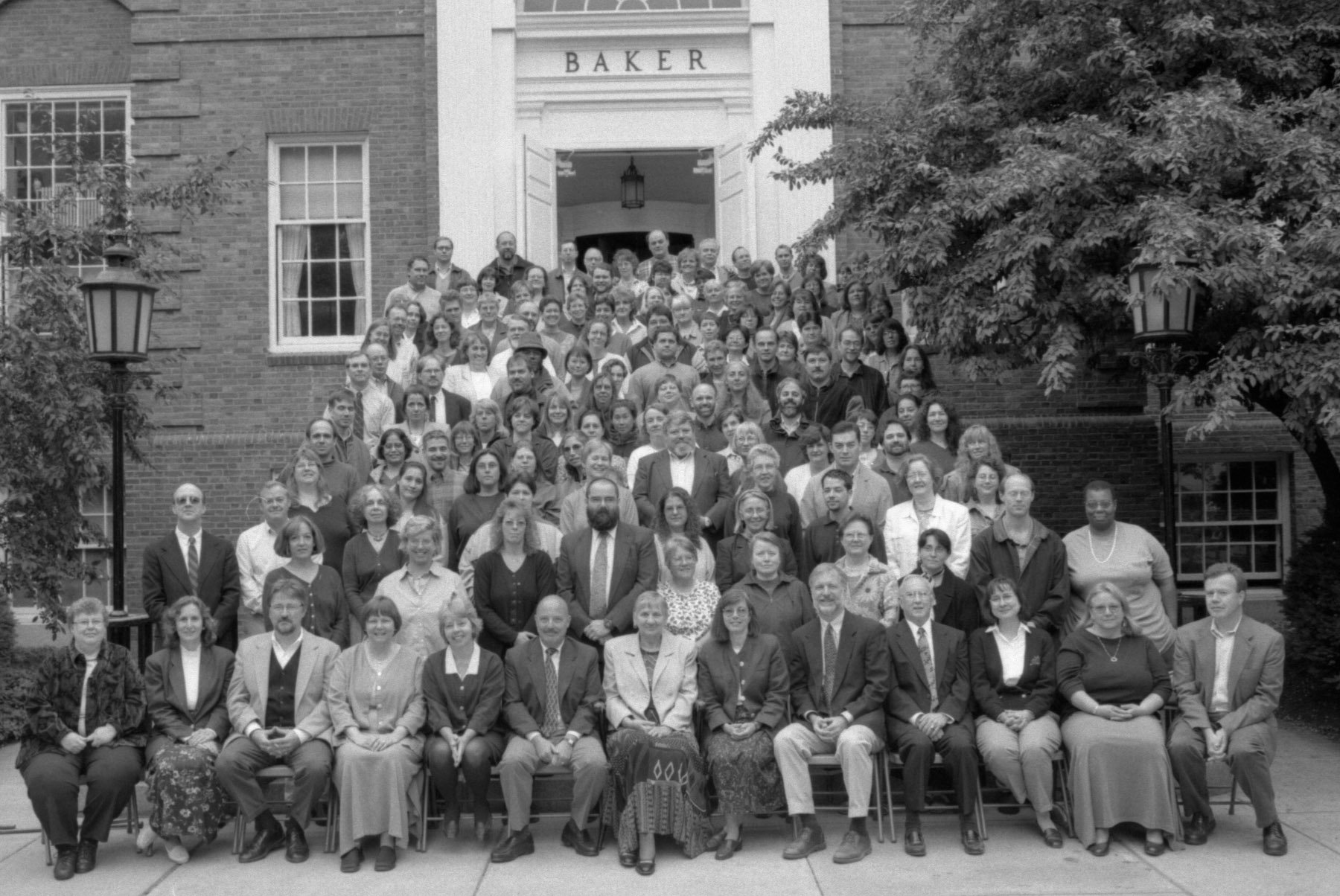
by Admin | Jun 18, 2021 | Chronicles, News
This week in The History of AI at AIWS.net – the Dartmouth Conference began on 18 June 1956. This gathering would run through the entire summer at Dartmouth College in Hanover, New Hampshire.
The Dartmouth Conference was originally dreamt up by John McCarthy, Marvin Minsky, Nathaniel Rochester, and Claude Shannon. They envisioned a workshop to connect computer and information sciences with the brain. In addition to asking for funding, they also determined that Dartmouth College was the location to host such event.
At the actual event, various attendees came and go throughout the (approximate) eight weeks the workshop ran for. On weekdays, the participants had the top floor of the Mathematics Department at Dartmouth College to present their ideas, as well as having general discussions held. Participants and members (outside of the authors) of the discussions and presentations included, but not limited to, Ray Solomonoff, Arthur Samuel, Herbert Simon, Allen Newell, and Oliver Selfridge.
This event marks one of the beginnings of AI – the conception of what AI is and AI could be. Without a seminal event like this, AI would not exist or may have taken a different direction entirely. Thus, the HAI project considers the Conference an event in the History of AI.

by Admin | Jun 10, 2021 | Chronicles, News
This week in The History of AI at AIWS.net – The UN Charter Day Roundtable: A Social Contract in the Age of AI and Intellectual Society was hosted on June 26, 2020.
The roundtable was an event of the UN to discuss the Social Contract 2020 (A New Social Contract in the Age of AI), as well as other new concepts and terms such as “Intellectual Society.” Participants of this roundtable were Governor Michael Dukakis, Nguyen Anh Tuan, professors Thomas Patterson, Nazli Choucri, Alex Pentland, and David Silbersweig. The moderator was Ramu Damodaran, Chief of United Nations Academic Impact, Editor in Chief of The United Nations Chronicle.
This roundtable, albeit happening just in the past year, is a contributing stone to the foundation and the road to the Social Contract 2020, which was released later that year. Thus, the HAI project considers this a milestone in the development of artificial intelligence, in broader society.
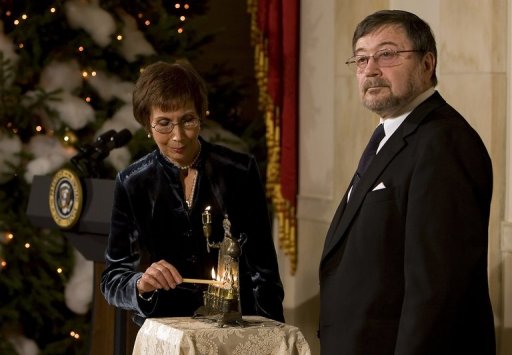
by Admin | Jun 3, 2021 | Chronicles, News
This week in The History of AI at AIWS.net – Judea Pearl receives the ACM Turing Award 2011 on 16 June, 2012. He was chosen by ACM for his contributions to the field of Artificial Intelligence, most notably probabilistic and causal reasoning.
The Turing Award is one of the most prestigious awards in the field, often considered the Nobel Prize of Computer Science. ACM, the Association for Computer Machinery, began giving out the award in 1966, whose first recipient was Alan Perlis. The award was named after Alan Turing, who is widely considered the father of computer science and Artificial Intelligence. Other winners include Marvin Minsky, John McCarthy, Yoshua Bengio, Geofrrey Hinton, and Yann LeCun, all that made enormous contributions to computer science and Artificial Intelligence.
Judea Pearl is a renowned Israeli-American computer scientist. He is a pioneer into Baynesian networks, probabilistic approaches to AI, and causal inference. He is also known for his books, Probabilistic Reasoning in Intelligent Systems (1988), Causality: Models, Reasoning, and Inference (2000), and The Book of Why: The New Science of Cause and Effect (2018). Pearl is a Chancellor’s Professor at UCLA.
Due to the impact that Judea Pearl had on Artificial Intelligence, specifically in terms of Causal Inference, the History of AI initiative considers it an important marker in AI history. Professor Judea Pearl is one of the most influential computer scientists around the world. He is also a Mentor of AI World Society Innovation Network (AIWS.net). Professor Pearl resides on the History of AI Board. He was honored as 2020 World Leader in AI World Society by Michael Dukakis Institute and the Boston Global Forum.
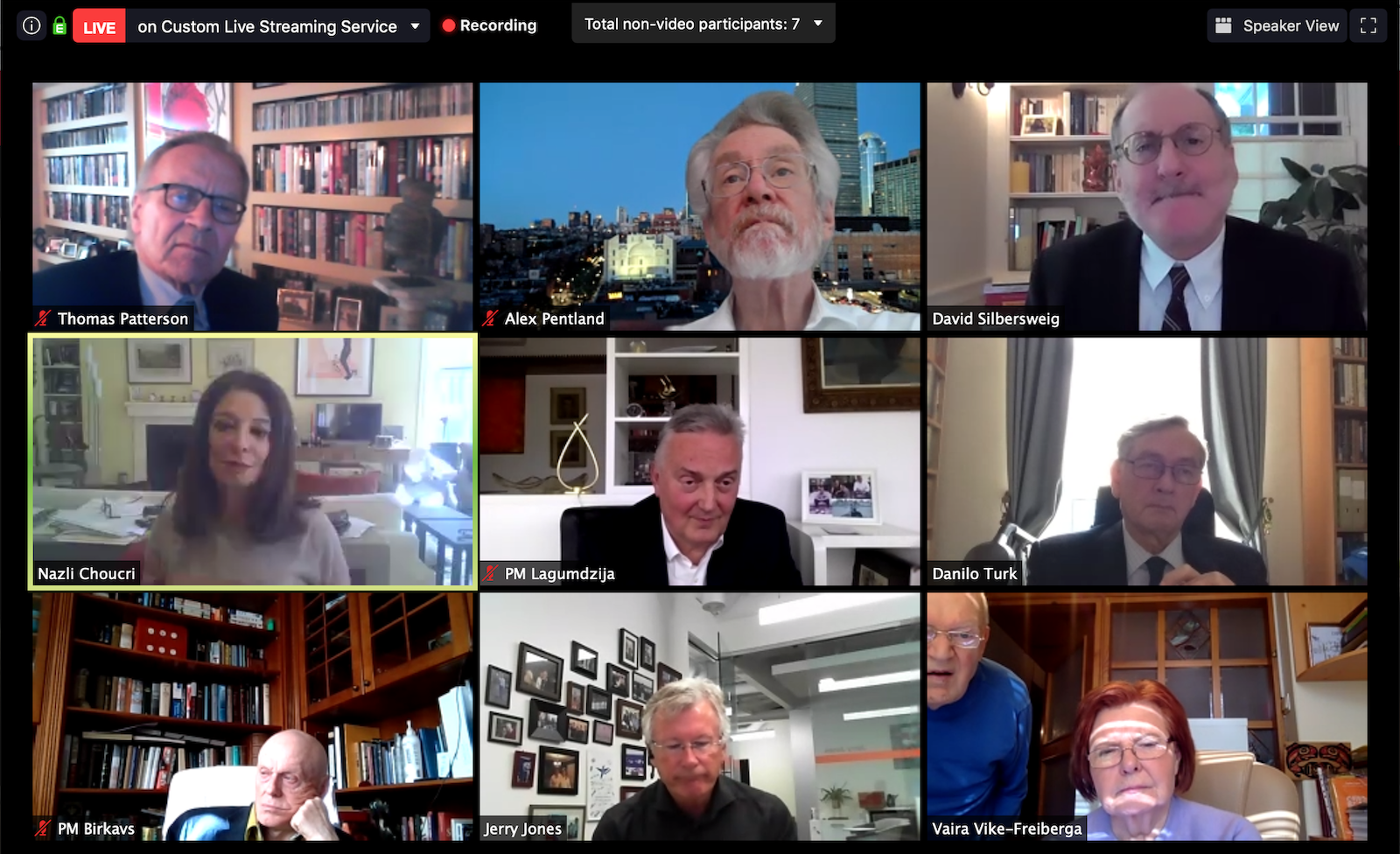
by Admin | May 29, 2021 | Chronicles, News
This week in The History of AI at AIWS.net – the World Leadership Alliance Club de Madrid organized the Online Roundtable “A New Social Contract in the Age of AI” on May 12, 2020.
The Roundtable was organized by the WLA-CdM in conjunction with Boston Global Forum. Panelists of the roundtable included professors and former head of states and governments. Members include the authors of the Social Contract 2020 – Thomas Patterson, Nazli Choucri, Alex Pentland, David Silbersweig, and Nguyen Anh Tuan. The full working title of this was “The Social Contract 2020, A New Social Contract in the Age of AI”.
This roundtable, albeit happening just in the past year, is a contributing stone to the foundation and the road to the Social Contract 2020, which was released later that year. Thus, the HAI project considers this a milestone in the development of artificial intelligence, in broader society.
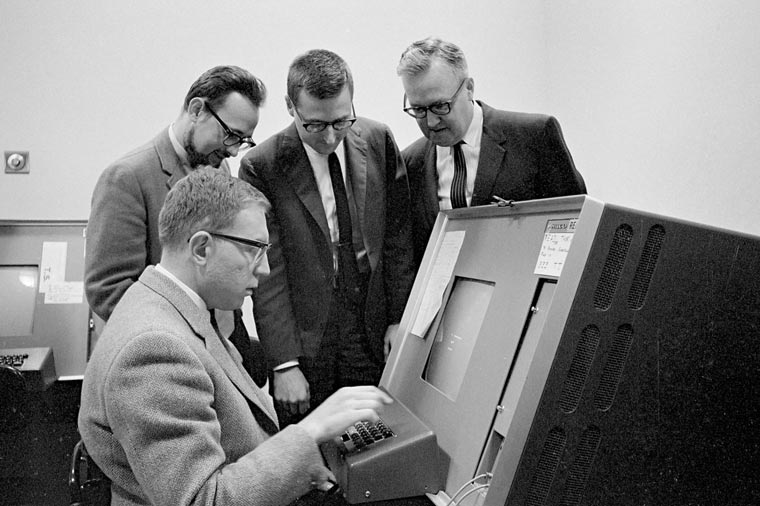
by Admin | May 21, 2021 | Chronicles, News
This week in The History of AI at AIWS.net – Edward Feigenbaum formally introduces expert systems in 1965. He was a part of the Stanford Heuristic Programming Project, which contained other notable AI pioneers.
Edward Feigenbaum is an American computer scientist focused on Artificial Intelligence. He studied at Carnegie Mellon University for both his B.S. and Ph.D., with Herbert Simon, an AI pioneer, as his doctoral advisor. He would go on to work at UC Berkeley and Stanford, the latter where he became Professor Emeritus of Computer Science (since 2000). Feigenbaum received the ACM Turing Award in 1994 with Raj Reddy for pioneering in AI and demonstrating its commercial potential.
The Stanford Heuristic Programming Project included members outside of Edward Feigenbaum such as Bruce G. Buchanan, Joshua Lederberg, and Carl Djerassi. They are most notable for the MYCIN experiments. Many of their papers and research can be read here.
Expert systems would become the basis for future AI products and developments. Furthermore, the members who were a part of this project would also work on other pioneering projects in A. Thus, the HAI initiative sees this event as a marker in the history of AI.

by Admin | May 14, 2021 | Chronicles, News
This week in The History of AI at AIWS.net – The Book of Why by Judea Pearl was published on 15 May, 2018. The book discusses causality and Bayesian probability, as well as their relations to fields such as AI and statistics.
Judea Pearl is a renowned Israeli-American computer scientist. He is a pioneer into Baynesian networks, probabilistic approaches to AI, and causal inference. He is also known for his other books, Probabilistic Reasoning in Intelligent Systems (1988) and Causality: Models, Reasoning, and Inference (2000). Professor Pearl won the Turing Award, one of the highest honours in the field of computer science, in 2011, for his works into AI through probabilistic and causal reasoning. He is a Chancellor’s Professor at UCLA.
The Book of Why (2018) can be bought through various booksellers such as Amazon and Barnes and Nobles, but further background information and supplementary materials can be found here.
Due to the impact that the book has, the History of AI initiative considers it an important marker in AI history. Professor Judea Pearl is one of the most influential computer scientists around the world. He is a Mentor of AI World Society Innovation Network (AIWS.net). Professor Pearl resides on the History of AI Board. He was honored as 2020 World Leader in AI World Society by Michael Dukakis Institute and the Boston Global Forum.

by Admin | May 7, 2021 | Chronicles, News
This week in The History of AI at AIWS.net – Edward Feigenbaum, Bruce G. Buchanan, Joshua Lederberg, and Carl Djerassi began work on Dendral in 1965. This was an AI project that later also became the first expert system.
Edward Feigenbaum is an American computer scientist focused on Artificial Intelligence. He studied at Carnegie Mellon University for both his B.S. and Ph.D., with Herbert Simon, an AI pioneer, as his doctoral advisor. He would go on to work at UC Berkeley and Stanford, the latter where he became Professor Emeritus of Computer Science (since 2000). Feigenbaum received the ACM Turing Award in 1994 with Raj Reddy for pioneering in AI and demonstrating its commercial potential.
Dendral was deveveloped at Stanford beginning in 1965, after the question “Can machines think?” became popularized. Led by Edward Feigenbaum, Bruce G. Buchanan, Joshua Lederberg, and Carl Djerassi, and assisted by associates and students, the project sought to study hypothesis formation and discovery in science. “Dendral” is a portmanteau of “Dendritic Algorithm”. Many expert systems that came after, such as XCON, were derived from Dendral.
The beginning of this project is considered an event in the history of AI due to the project itself contributing much to the development of AI. Dendral itself was both a culmination of past AI interests and the sparking of new ones. Thus, the HAI initiative sees the project as a marker in the history of AI.








